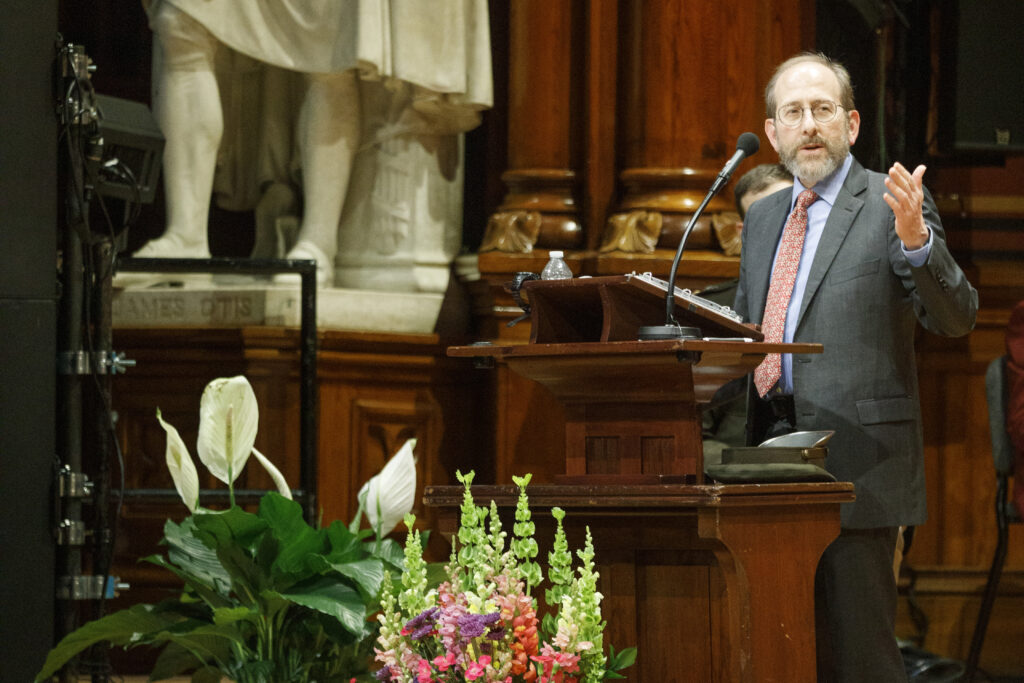Thank you, Major Allen.
Vice Admiral Cullom and distinguished guests—family and friends—I am pleased to be here today to mark this occasion with all of you.
I have been advised to keep my remarks brief. We will need adequate time to honor 23 of our students—the largest number of Harvard graduates being commissioned in more than 30 years.

Tomorrow, at our Commencement, we will celebrate the Harvard Class of 2024 and its entrance into a world of infinite possibilities. Each challenge and opportunity that lies ahead is a threshold to unimagined futures, each graduate free to choose which of those thresholds to cross and which to leave for others.
Today, in this hallowed hall, however, we gather to acknowledge a selfless decision to relinquish some of that freedom. Your embrace of duty without regard for circumstance signifies a genuine commitment, a commitment worthy of admiration and respect, a commitment that sets you apart from your classmates and places you in the company of individuals who have served—and continue to serve—at the intersection of two of the nation’s great institutions.
That commitment also grants you an education that Harvard cannot provide. We are very good, of course, at a great many things, but we cannot compete with the branches of the United States military when it comes to lessons in character and leadership. I say this not as your interim president but as a doctor who devoted nearly all of his clinical effort to the care of veterans. They deepened my appreciation for those who support and defend the Constitution, and they remain among my most important teachers.
Teachers, too, are those whose names are inscribed throughout the transept into which we entered today—136 sons of Harvard who paid the highest price for the Union cause during the Civil War. Nathaniel “Nat” Bowditch, plaque 28, was wounded in Kelly’s Ford, Virginia; suffered without medical attention on the battlefield; and succumbed to his injuries. His father, a physician, had previously advocated for the establishment of a proper ambulance system to attend to the wounded. Spurred by loss and grief, he pursued his cause with renewed intensity, urging others, and I quote, “to persuade our leaders to do simple justice toward every wounded soldier in the armies of the United States.” In March 1864, almost one year after his son’s death, Congress approved “An Act to establish a uniform System of Ambulances in the Armies of the United States.”
You inherit today a vast legacy of achievement that stretches far beyond the bounds of the institutions that proudly claim you as their own. May you choose both to learn as much as you can and to teach as much as you can. May you support one another as you have done throughout your time as students. And may you return to Harvard to find your number growing larger still.
We will be here, eager as ever to welcome you. Thank you.

